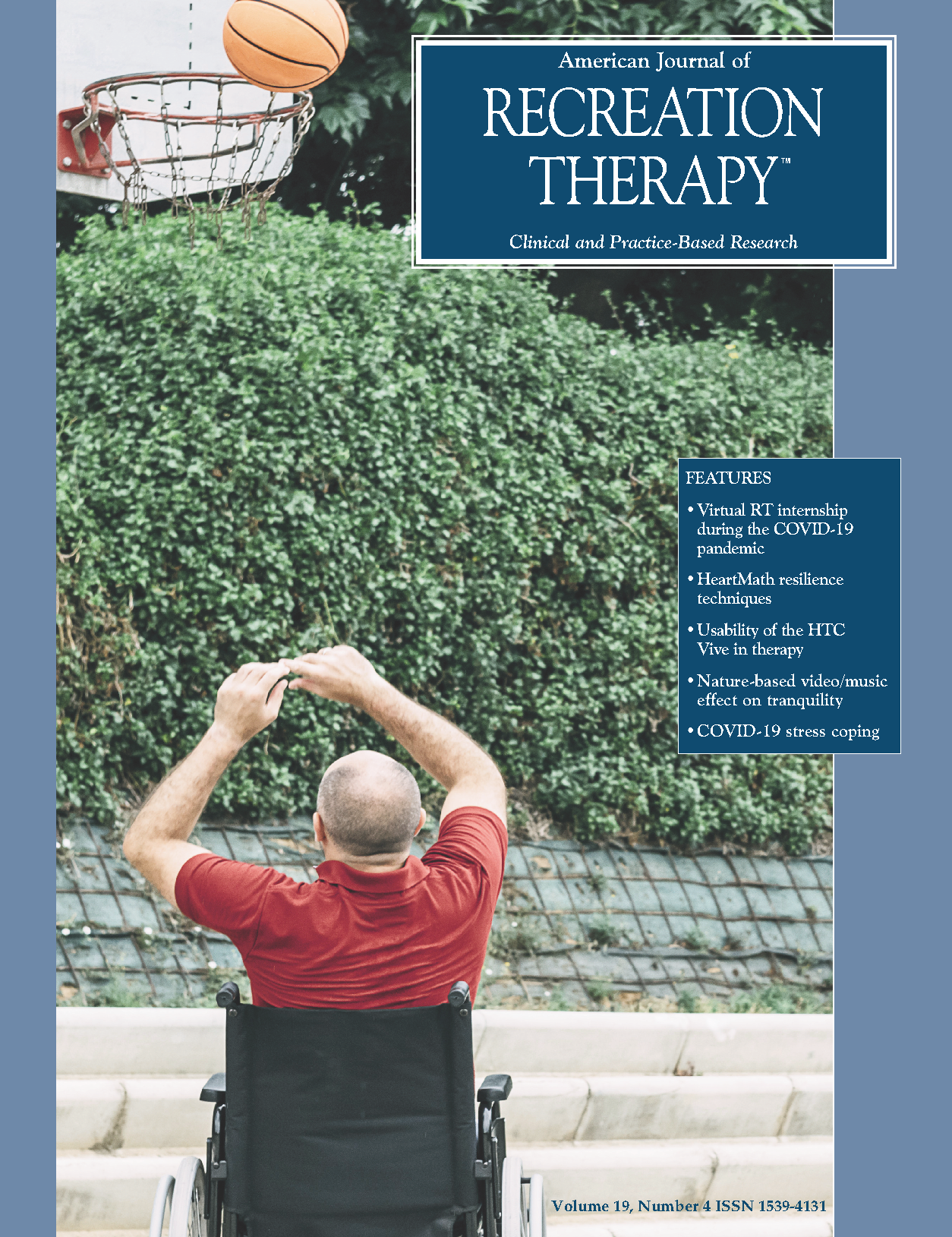Virtual recreation therapy internship during the COVID-19 pandemic: A programmatic review
DOI:
https://doi.org/10.5055/ajrt.2020.0222Keywords:
COVID-19, internship, fieldwork, telehealth, virtualAbstract
Despite the COVID-19 pandemic, academic-, healthcare-, and community-based recreation therapy (RT) programs have been creative in how to help students progress in their curriculum and complete their capstone fieldwork experiences through remote means. This article reports one university’s RT program’s development, implementation, and evaluation of a virtual internship, where the university provided both academic and agency supervision that met the requirements of national and state credentialing bodies as well as RT accreditation standards. Evaluation data from students and clients who received RT services are summarized, and implications for other similar programs are reported.
References
Project Implicit: Available at https://implicit.harvard.edu/implicit/index.jsp. Accessed March 14, 2021.
Folstein M, Folstein SE, McHugh PR: Mini-Mental state a practical method for grading the cognitive state of patients for the clinician. J Psychiatr Res. 1975; 12(3): 189-198.
World Health Organization: Development of the world health organization WHOQOL-BREF quality of life assessment. Psychol Med. 1998; 28(3): 551-558.
Topp CW, Østergaard SD, Søndergaard S, et al.: The WHO-5 well-being index: A systematic review of the literature. Psychother Psychosom. 2015; 84: 167-176.
Peterson CA, Dunn J, Carruthers A, et al.: Functional assessment of characteristics for therapeutic recreation revised. In Assessment Tools for Recreational Therapy and Related Fields, 3rd ed. Ravensdale, Washington: Idyll Arbor, 2010: 369-380.
Cardaciotto L, Herbert JD, Forman EM, et al.: The assessment of present-moment awareness and acceptance: The Philadelphia mindfulness scale. Assessment. 2008; 15: 204-223.
Beck AT, Epstein N, Brown G, et al.: An inventory for measuring clinical anxiety: Psychometric properties. J Consult Clin Psychol. 1988; 56: 893-897.
Bayerlein L, Jeske D: Curriculum innovation in undergraduate accounting degree programmes through “virtual internships”. Educ Training. 2015; 57(6): 673-684.
Koonin LM, Hoots B, Tsang CA, et al.: Trends in the use of telehealth during the emergence of the COVID-19 pandemic—United States, January–March 2020. MMWR Morb Mortal Wkly Rep. 2020; 69: 1595-1599. DOI: 10.15585/mmwr.mm6943a3externalicon.
Campos-Castillo C, Anthony D: Racial and ethnic differences in self-reported telehealth use during the COVID-19 pandemic: A secondary analysis of a US survey of internet users from late march. J Am Med Inform Assoc. 2021; 28(1): 119-125.
Published
How to Cite
Issue
Section
License
Copyright 2000-2025, Weston Medical Publishing, LLC and American Journal of Recreation Therapy. All Rights Reserved.


